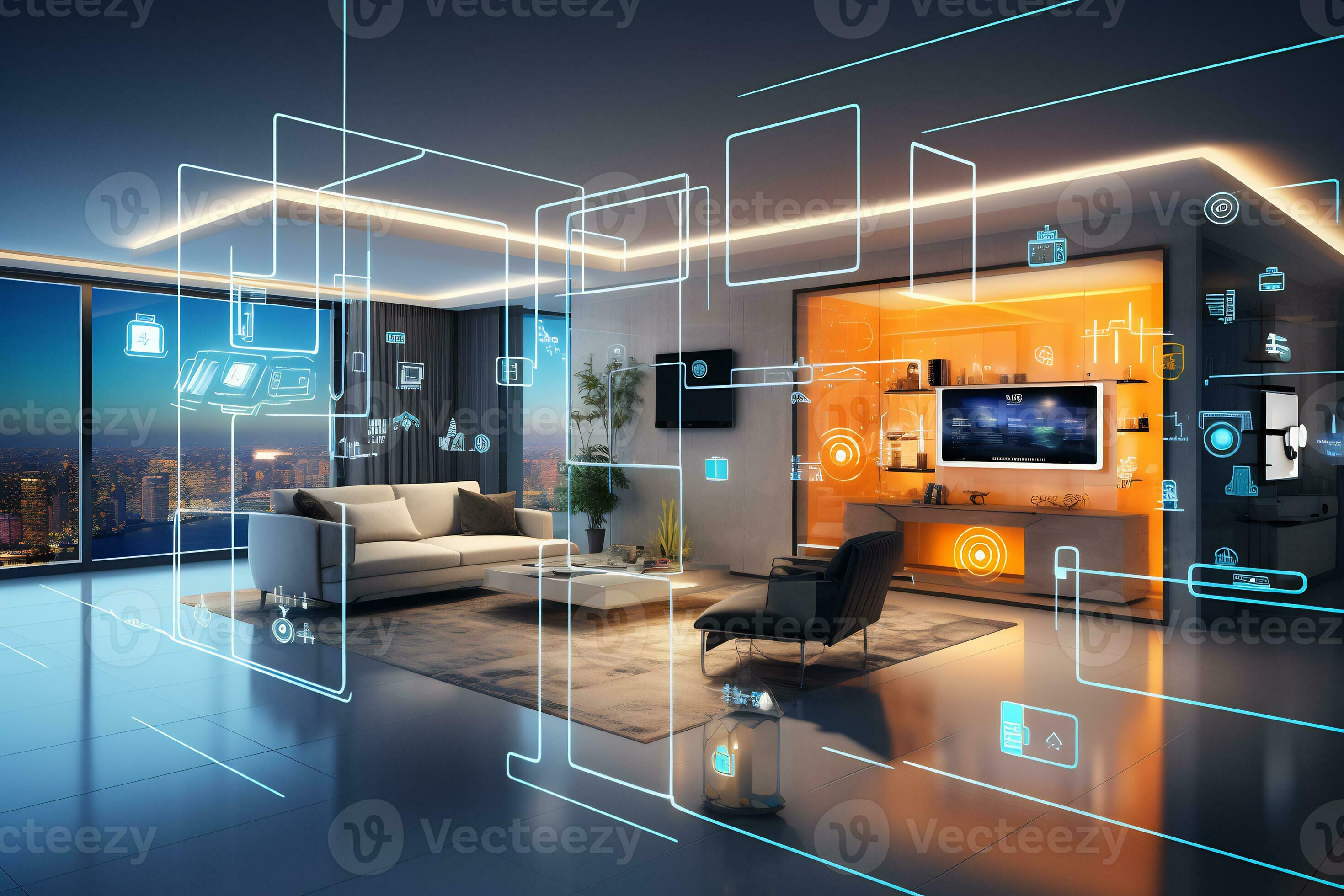AI-Powered Smart Homes: The Future of Living
The concept of home has always been synonymous with comfort and security. However, in recent years, the emergence of artificial intelligence (AI) has redefined the possibilities of modern living spaces. AI-powered smart homes are not just futuristic fantasies; they are tangible realities reshaping how we live, interact, and manage our daily lives. 
These advancements present an unprecedented level of convenience, energy efficiency, and personalization, setting the stage for a revolutionary transformation in residential living.
Transforming the Core of Home Automation
Artificial intelligence has become the cornerstone of smart home innovation, breathing life into automation systems that were once considered rudimentary. Traditional home automation relied on pre-set schedules and manual configurations. Now, AI enables systems to learn from user behavior and adapt intelligently.
Whether it’s adjusting the thermostat, dimming lights, or suggesting music, AI algorithms analyze patterns to deliver highly personalized and seamless experiences.
Voice-controlled assistants like Amazon Alexa, Google Assistant, and Apple’s Siri epitomize this leap in technology. These devices not only respond to commands but also engage in contextual conversations, offering recommendations tailored to individual preferences. The integration of natural language processing (NLP) ensures that interactions feel intuitive, minimizing the learning curve for users.
Enhancing Energy Efficiency and Sustainability
Energy consumption has become a pressing concern in today’s environmentally conscious world. AI-powered smart homes tackle this challenge head-on by optimizing energy use without compromising comfort.
Intelligent thermostats, such as Nest or Ecobee, leverage machine learning to anticipate heating and cooling needs based on occupancy patterns and weather forecasts. This dynamic adjustment significantly reduces unnecessary energy waste.
Beyond thermostats, smart appliances equipped with AI are redefining energy efficiency. Refrigerators, washing machines, and dishwashers can schedule operations during off-peak electricity hours, reducing costs and strain on the power grid. By monitoring energy usage in real time, these systems empower homeowners to make informed decisions about their consumption habits, aligning with broader sustainability goals.
Security Reinvented with AI
Safety is a primary concern for any household, and AI-powered solutions are elevating home security to unprecedented levels. Advanced surveillance systems equipped with facial recognition and motion detection now offer proactive threat identification.
These systems can distinguish between a family member, a guest, or an intruder, ensuring appropriate responses in real time.
AI-driven security extends beyond cameras. Smart locks, for instance, provide dynamic access control by enabling homeowners to grant temporary access to visitors remotely.
Furthermore, AI can analyze data from various sensors to detect anomalies, such as unusual sounds or movements, and notify residents or authorities promptly. This fusion of AI and IoT creates a robust security ecosystem that adapts and evolves with emerging threats.
Revolutionizing Entertainment and Lifestyle
AI has also transformed how we experience leisure and entertainment at home. Smart TVs and streaming platforms now recommend content based on viewing habits, creating a personalized media experience. AI-powered sound systems adjust audio settings according to room acoustics, delivering cinema-quality sound within a domestic environment.
In addition, AI is enhancing wellness and productivity within smart homes. Virtual fitness trainers integrated with smart mirrors offer personalized workout routines, while AI-powered lighting systems regulate circadian rhythms by mimicking natural sunlight. These innovations ensure that residents enjoy a holistic living experience that prioritizes both mental and physical well-being.
Seamless Integration of Smart Ecosystems
The hallmark of a truly AI-powered smart home is its ability to integrate multiple devices into a unified ecosystem.
This interoperability is made possible through platforms like Apple HomeKit, Samsung SmartThings, and Zigbee. AI acts as the connective tissue, enabling devices to communicate and collaborate efficiently.
For instance, upon detecting that a homeowner is en route, the smart home system can simultaneously adjust the thermostat, turn on specific lights, and preheat the oven. This level of synchronization eliminates the need for manual intervention, allowing homeowners to focus on what matters most.
Overcoming Challenges in AI-Driven Smart Homes
While the potential of AI-powered smart homes is immense, several challenges must be addressed to achieve widespread adoption. Privacy concerns remain a significant barrier, as AI systems often require access to sensitive data to function effectively. Ensuring robust data encryption and transparency in data usage is crucial to building consumer trust.
Another challenge lies in accessibility and affordability. Advanced AI systems often come with high initial costs, making them less accessible to average homeowners. However, as technology matures and economies of scale take effect, these solutions are expected to become more affordable, paving the way for broader adoption.
The future of AI-powered smart homes is brimming with possibilities. As AI continues to evolve, we can anticipate even greater levels of personalization and automation. Emerging technologies, such as edge computing and 5G, promise to enhance the speed and efficiency of smart home systems, enabling real-time decision-making and reducing latency.
Moreover, the integration of generative AI could redefine creativity within smart homes, allowing residents to design custom interiors, suggest meal plans, or even compose music tailored to their moods. The potential for innovation is boundless, limited only by imagination and ethical considerations.
Conclusion
AI-powered smart homes represent a paradigm shift in residential living. By combining intelligence with automation, these systems deliver unparalleled convenience, security, and sustainability. While challenges remain, the trajectory of this technology suggests a future where smart homes are not just a luxury but a standard for modern living. As we embrace this transformative era, the focus must remain on creating solutions that are accessible, secure, and aligned with the evolving needs of society.











![[LIVE] Engage2Earn: GoFundMeme comments](https://cdn.bulbapp.io/frontend/images/1ed886b0-9b45-4102-a95e-97d412093f08/1)


























































